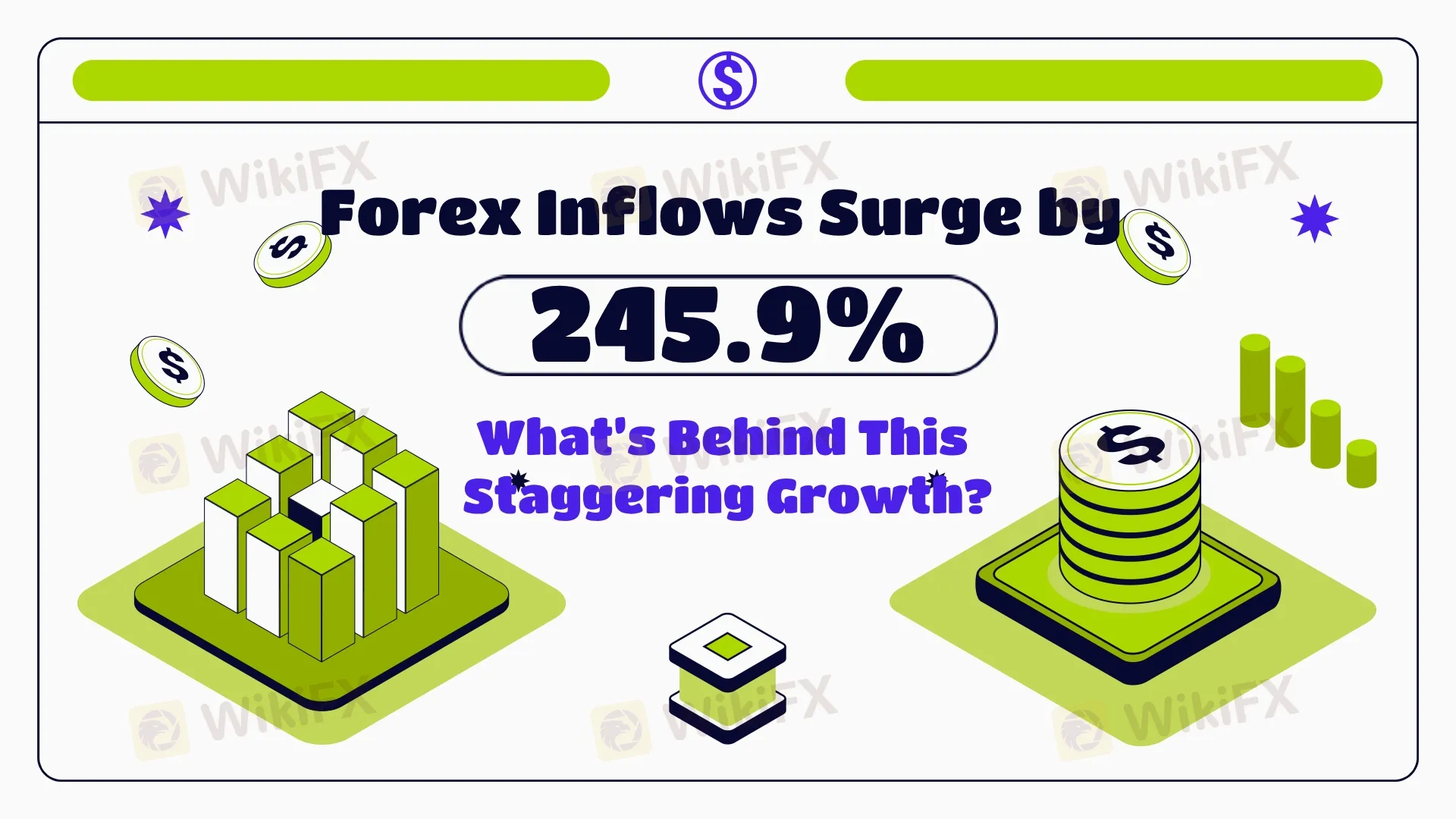简体中文
繁體中文
English
Pусский
日本語
ภาษาไทย
Tiếng Việt
Bahasa Indonesia
Español
हिन्दी
Filippiiniläinen
Français
Deutsch
Português
Türkçe
한국어
العربية
Forex Inflows Surge by 245.9%, What’s Behind This Staggering Growth?
Abstract:As of November 2024, Nigeria's net foreign exchange inflows have surged to $5.95 billion over the past year, marking an impressive increase of 245.9%, with a significant rise in foreign currency flowing into the country's economy.

According to the Central Bank of Nigeria (CBN) economic report, the country's foreign exchange inflows have notably increased over the past year. In November 2023, the foreign exchange inflows were $1.7 billion, whereas this figure surged to $5.95 billion in November 2024, reflecting strong momentum in foreign exchange inflows.
However, on a monthly basis, the net foreign exchange inflows in November 2024 slightly decreased compared to October due to reduced foreign exchange inflows through banking channels. In October 2024, Nigeria's net foreign exchange inflows were $4.86 billion, whereas in November, it rose to $5.95 billion. Meanwhile, total foreign exchange inflows decreased from $9.15 billion in October to $8.4 billion in November. Notably, foreign exchange outflows also saw a significant decline, dropping from $4.29 billion to $2.45 billion.
During this period, the Naira depreciated against the US dollar. Additionally, the average foreign exchange turnover on the Nigerian Financial Foreign Exchange Market (NFEM) increased by 24.78% from $241.65 million in October 2024 to $301.52 million in November.
Net Foreign Exchange Flow Explained
Net foreign exchange flow refers to the difference between the total amount of foreign exchange flowing into a country or economy and the total amount flowing out within a given period. It reflects the movement of capital in the foreign exchange market of that economy. Specifically, when net foreign exchange flow is positive, it means the foreign exchange inflows into the economy exceed the outflows, indicating that the country's foreign exchange reserves are being replenished and there is a healthy inflow of capital.
Disclaimer:
The views in this article only represent the author's personal views, and do not constitute investment advice on this platform. This platform does not guarantee the accuracy, completeness and timeliness of the information in the article, and will not be liable for any loss caused by the use of or reliance on the information in the article.
Read more

Never Heard of Dynasty Trade? Here's Why You Should Be Worried
Have you heard this name before? No , it’s time you do because staying unaware could cost you. This platform is currently active in the forex trading and has been linked to several suspicious activities. Even if you’ve never dealt with it directly, there’s a chance it could reach out to you through ads, calls, messages, or social media. That’s why it’s important to know the red flags in advance.

WEEKLY SCAM BROKERS LIST IS OUT! Check it now
If you missed this week's fraud brokers list and are finding it difficult to track them one by one — don’t worry! We’ve brought together all the scam brokers you need to avoid, all in one place. Check this list now to stay alert and protect yourself from fraudulent brokers.

Catch the Latest Update on BotBro & Lavish Chaudhary
BotBro, an AI-based trading platform, became popular in India in 2024—but for negative reasons. Its founder, Lavish Chaudhary, who gained a huge following by promoting it heavily on social media. Since then, he has become well-known, but for many controversies. Let’s know the latest update about Botbro & Lavish Chaudhary.

Trading Other People’s Money | What Prop Firms Don’t Tell You
Proprietary (prop) trading firms have become increasingly popular. They give traders the chance to trade with larger amounts of money without risking their own savings. For many, this sounds like the perfect opportunity to grow faster and earn more. But while the benefits are appealing, there are also risks and hidden rules that traders must understand before joining a prop firm.
WikiFX Broker
Latest News
Asia-Pacific stocks fall as investors weigh recent trade developments
Is Your Forex Strategy Failing? Here’s When to Change
FSMA Warns That Some Firms Operate as Pyramid Schemes
Apex Trader Funding is an Unregulated Firm | You Must Know the Risks
LVMH shares jump 2.5% after reporting better-than-feared earnings, Texas factory plans
Why Octa Is the Ideal Broker for MetaTrader 4 & 5 Users
Stop Level Forex: How Does it Help Traders Prevail When Losses Mount?
5 things to know before the Thursday open: Meme stock revival, Trump's Fed visit, Uber's gender feature
CNBC's Inside India newsletter: Leaving, but not letting go — India's wealthy move abroad, but stay invested
Moncler raises prices on tariffs, may postpone store openings if downturn worsens
Currency Calculator


